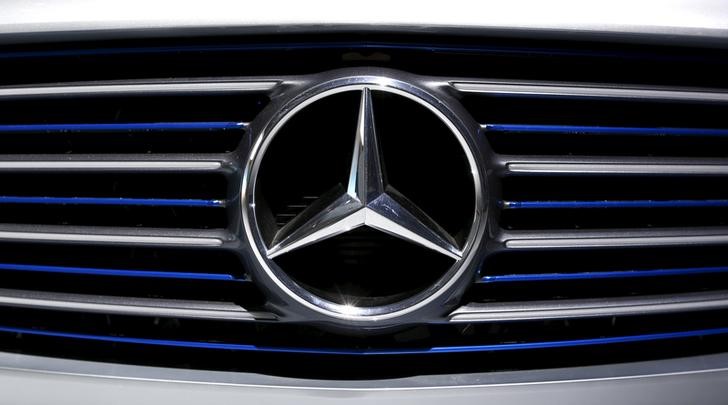(Reuters) - German automaker Daimler AG (DE:DAIGn) said late Thursday it is conducting an internal investigation of its certification process for diesel exhaust emissions in the United States at the request of the Justice Department.
The investigation comes six months after the U.S. Environmental Protection Agency said it would review all light-duty diesel vehicles in the United States after Volkswagen (DE:VOWG_p) AG admitted to installing software in diesel vehicles sold since 2009 that allowed them to emit up to 40 times legally allowable pollution.
"Daimler is cooperating fully with the authorities. Daimler will consequently investigate possible indications of irregularities and of course take all necessary actions," the company said in a statement. "The company's experience with the U.S. authorities has clearly shown that a conservative communication supports the constructive dialogue with the authorities."
The U.S. Environmental Protection Agency said in February it had requested information from Daimler in light of a lawsuit filed by U.S. Mercedes owners but had not opened an official investigation.
In early April, owners of U.S. Mercedes diesel cars filed a new class action saying the vehicles likely contained a "defeat device" used to cheat emissions testing, an accusation that Daimler, which owns the carmaker, denied.
On Thursday, Daimler said the lawsuits "are considered to be without merit and Daimler will defend itself against them with all available legal means."
U.S. law firm Hagens Berman, which had already filed a complaint in February, said new tests had shown that Mercedes BlueTEC cars produced nitrogen oxide emissions in virtually all road tests that were far higher than in controlled lab tests.
"The fact that Mercedes passed the dynamometer test in all tests, but failed the real world test, is suggestive that like VW, Mercedes is implementing a 'defeat device'," it said in its complaint filed in New Jersey.
BlueTEC is a filter system that uses urea to help rid exhaust fumes of health-threatening nitric oxides. It is fairly costly and used mainly in heavier cars like Diamler's large limousines or sports utility vehicles, which are equipped with powerful diesel engines.

The complaint previously filed by Hagens Berman was more limited, alleging that Daimler knowingly programmed its so-called clean diesel vehicles to emit illegal levels of nitrogen oxide in low temperatures.